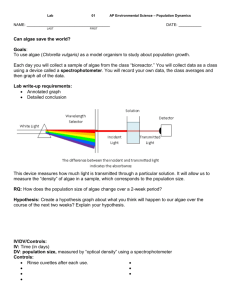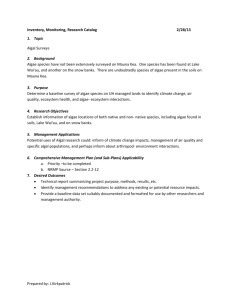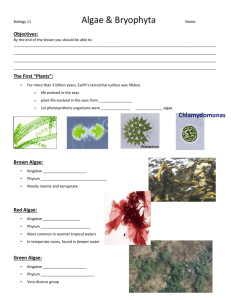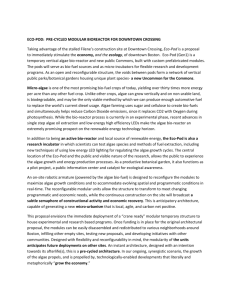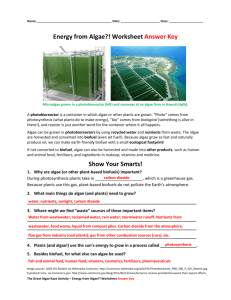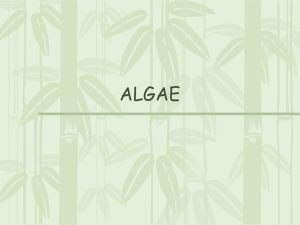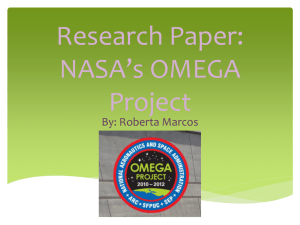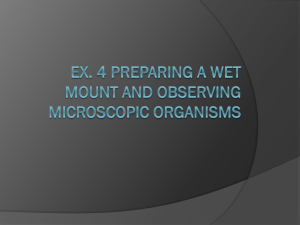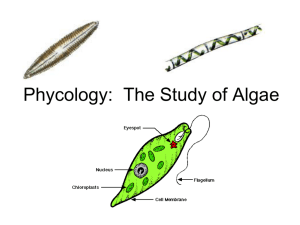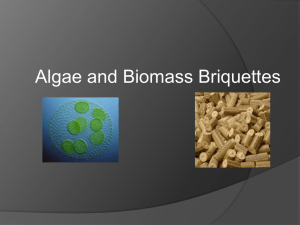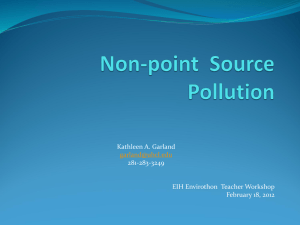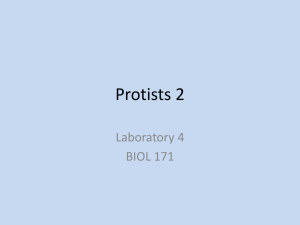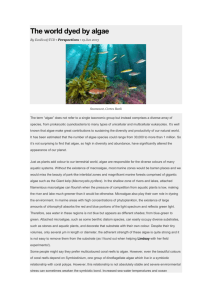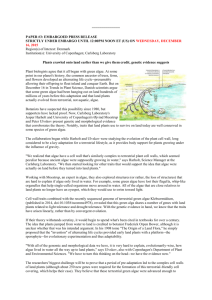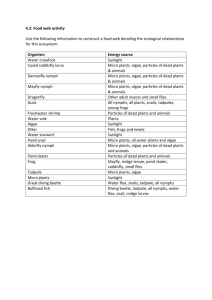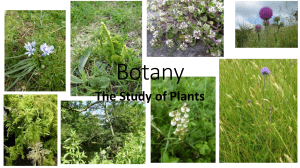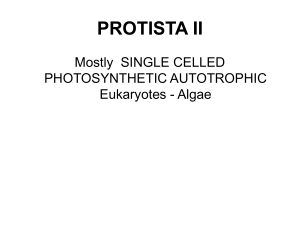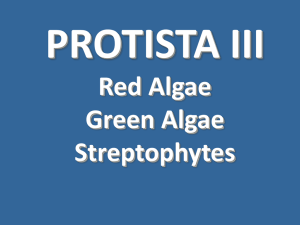File
advertisement
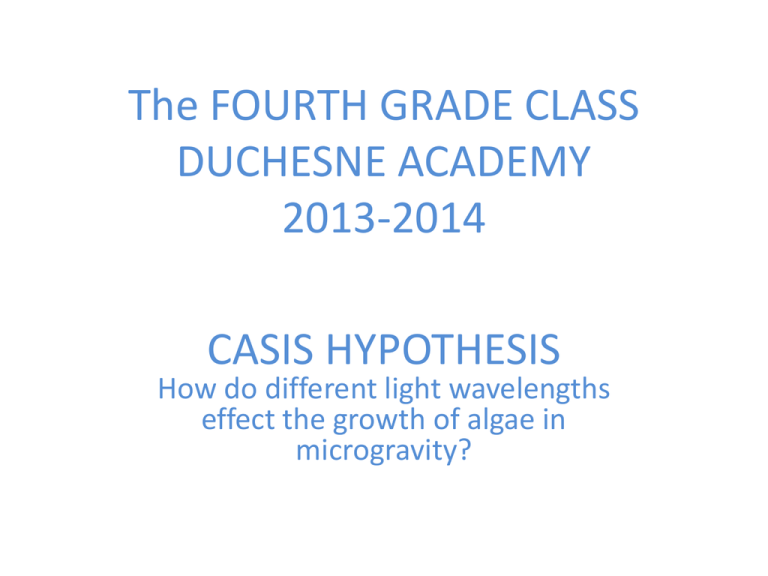
The FOURTH GRADE CLASS DUCHESNE ACADEMY 2013-2014 CASIS HYPOTHESIS How do different light wavelengths effect the growth of algae in microgravity? GOALS and OBJECTIVES • How do different light wavelengths effect the growth of algae (chlorella vulgaris) in microgravity? The goal is to have the students conduct a controlled experiment to test a hypothesis about conditions and their effect on the growth of algae using different wavelengths of light. We will monitor the plant growth through daily observations to find the preferred light in which alga grows best in microgravity. MEASUREMENT APPROACH • We will create a grid on a transparent piece of material in increments of 5 mm. We will observe the grid daily with our cameras so we can measure the algae growth. IMPORTANCE and REASON FOR ISS • We feel that algae are important to our future fuel resources. Algae contain approximately 60% of its weight in biodiesel. If we can find the preferred color of light, then we can increase the speed of algae’s growth rate. This could be utilized as a bio-fuel in space and on earth. EXPECTED RESULTS • In 2011 experiments done by Chambers, they found a trend of the best colors to grow algae. The three colors that provided the most growth are blue, green and red light. If we can test for the effect of light wavelengths on the growth of algae, then we can find the optimal color for the highest overall rate of algae growth. EARTH BENEFITS • Algae have a very high percentage of oil. We think that algae could be used as a fuel source for cars and even an energy source on the ISS. Algae have many qualities that may help astronauts in space. It grows quickly, efficiently under certain conditions such as different wavelengths. Our experiment will determine which wavelengths and colors of light aid and benefit the growth of algae.
